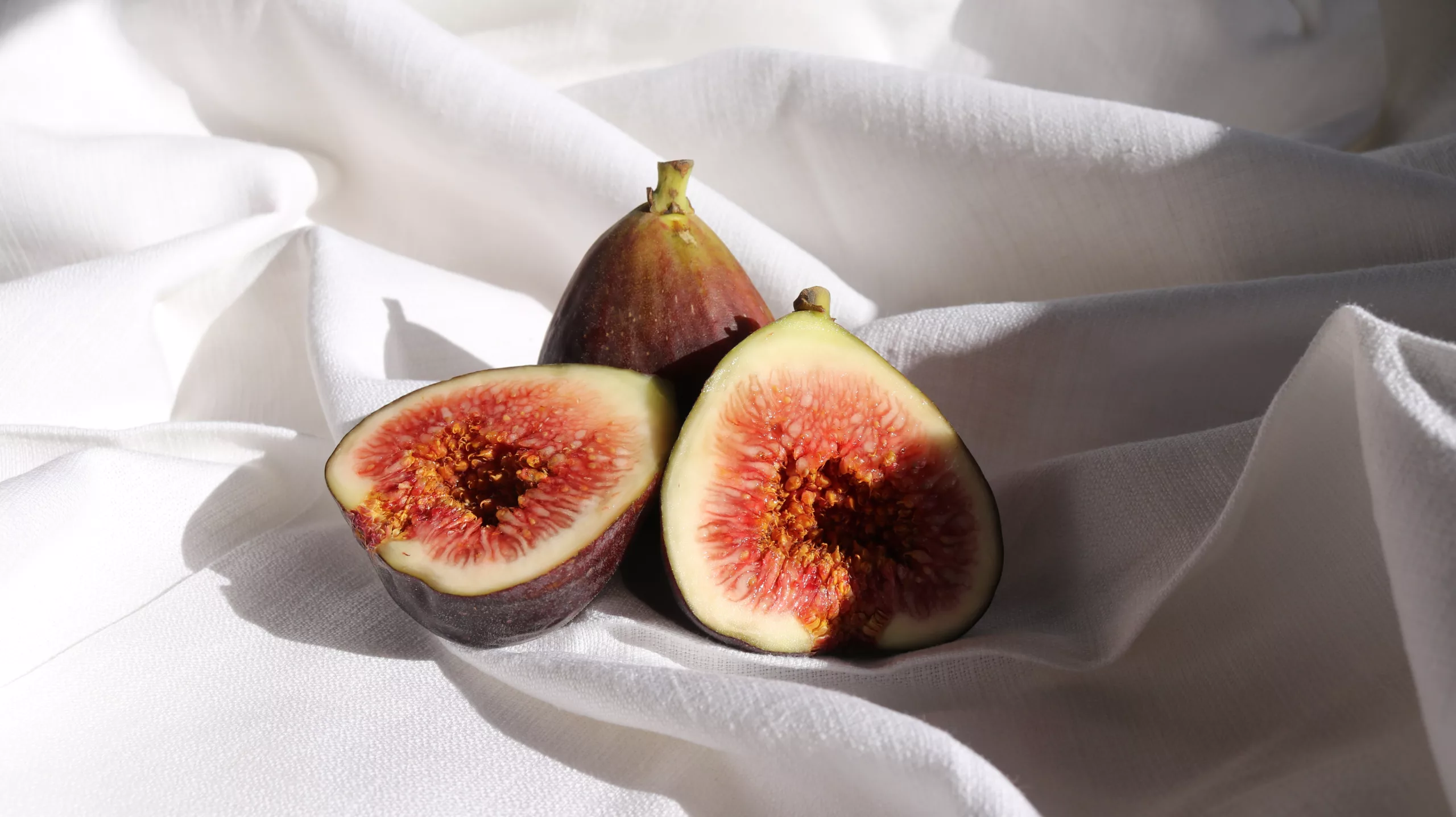Written by Kimberley Gittens, RD on behalf of Rachel McBryan, RD
Similar to water-soluble vitamins, fat-soluble vitamins are essential for maintaining good health. They are four fat-soluble vitamins which include vitamin A, D, E, and K. These vitamins are found in a wide variety of foods from fish to vegetables.
In this article, we will explore the health benefits of fat-soluble vitamin and ways to include them in your diet, and provides some gut-friendly options.
Vitamin A
Vitamin A supports many systems throughout the body and is essential for normal vision, immune support and reproduction. Vitamin A is also essential in supporting organs, such as the heart and kidneys function correctly.
There are 2 different kinds of vitamin A:
-
- Pre-formed vitamin A
- Provitamin A
Provitamin A is commonly found in plant products including fruits and vegetables, while pre-formed vitamin A can be found in animal-based products.
Health Canada recommends health adults consume between 700 to 900 micrograms RAE each day. Most people in Canada meet this recommended intake. However, people in developing countries may have an increased risk of defieincy. The most common symptom of vitamin A deficiency is xerophthalmia. Early signs of xerophthalmia include, reduced ability to see in low-light and night blindness.
Sources of Vitamin A
You can find pre-formed vitamin A in:
-
- Beef liver
- Atlantic herring
- Eggs
- Ricotta cheese
- Sockeye salmon
While some good sources of provitamin A include:
-
- Sweet potato
- Spinach
- Carrots
- Cantaloupe
- Mango
- Red sweet pepper
- Broccoli

Vitamin D
Vitamin D is well known for its role in supporting strong bones and teeth. But this vitamin, also supports our immune systems and helps promote the absorption of important minerals such as calcium and phosphorous.
Vitamin D is very unique in that our bodies are able to make their own vitamin D from sunlight. However, studies have found that approximately 50% of the world’s population is deficient in vitamin D. Low levels of vitamin D can lead to poor absorption of calcium and phosphorous, as well as bone density (known as osteoporosis). Vitamin D deficiency may also increase your risk of diabetes, high blood pressure, heart disease and obesity. Some populations may have a higher risk of vitamin D deficiency such as,
-
- Older individuals
- People living in extreme northern and southern regions of the globe
- People with dark skin pigmentations
Health Canada recommends healthy adults consume 600 IU (international units) per day while people over the age of 70 consume 800 IU per day. Including vitamin D-rich foods in your diet can help you meet recommended intakes.
Support Your Health with a Registered Dietitian
Are you interested in learning more about how fat-soluble vitamins can benefit your health? Book a FREE discovery call with a registered dietitian today to learn more!
Sources of Vitamin D
Vitamin D is not abundantly found in our diet, but some foods can be a great source of vitamin D such as:
-
- Fatty fish (ex. sardines, salmon, mackerel, herring)
- Egg yolk
- Fortified food (ex. orange juice, cereal, oatmeal and milk)
- Liver
- Mushrooms
Some people may not be able to meet their vitamin D requirements by food alone. There are a few different choices of vitamin D supplementations include:
-
- Vitamin D3 capsules (can be found in most pharmacies)
- Vitamin D sublingual drops
- Vitamin D injections

Vitamin E
Vitamin E is an antioxidant which protects our cells from free radical damage. It also plays an important role in supporting our immune system.
You may be surprised to learn that vitamin E is not one vitamin, but rather a collection of 8 fat-soluble compounds, each with distinctive antioxidant features. These eight compounds are belong to one of two groups: tocopherol and tocotrienol. The eight compounds include:
-
- Alpha-, beta-, gama-, and delta-tocopherol
- Alpha-, beta-, gama-, and delta-tocotrienol
The only compound that can meet our bodies’ needs is alpha-tocopherol. This particular compound is produced both naturally and synthetically. The naturally produced form of the compound is known as “d-alpha-tocopherol” and is stronger than the synthetic form is known as “dl-alpha-tocopherol”. 1 mg of natural vitamin E is equivalent to 2 mg of synthetic vitamin E.
This does not mean that the natural form of vitamin E is inherently superior to the synthetic form. It simply means that we need to consume twice the amount of synthetic vitamin E for it to be as strong as the natural form.
Due to its role as an antioxidant and in supporting our body’s immune function, vitamin E is thought to be protective against some diseases, including cardiovascular disease and many chronic diseases.
Sources of Vitamin E
Although vitamin E is another fat-soluble vitamin, it is naturally found in various foods. It is also added to other foods to increase their nutritional value. Some good sources of vitamin E include,
-
- Sunflower seeds & Sunflower oil
- Almonds
- Hazelnuts
- Peanuts & Peanut butter
- Mango
- Tomato
- Spinach
Health Canada recommends healthy adults get 14 grams of vitamin E each day. You can find a full list of recommendations from Health Canada’s page.

Vitamin K
There are 2 main forms of vitamin K, phylloquinone (also known as vitamin K1) and menaquinone (also known as vitamin K2). Phylloquinone is the main form of vitamin K in foods, and it is mainly found in leafy, green vegetables. Similarly, menaquinone are also found in some foods including animal-based and fermented products, and have many subtypes.
Vitamin K plays an important role in maintaining healthy bones and forming of blood clots. The body requires vitamin K for the activation of enzymes in the blood clotting pathway, and without enough vitamin K, cuts and grazes will take longer to stop bleeding.
Some groups of people have a higher risk of vitamin K deficiency than others. This includes,
-
- People using antibiotics for long periods
- People taking coagulants (such as warfarin)
- People with fat malabsorption conditions (such as celiac disease and cystic fibrosis)
However, vitamin K deficiency is very rare. This is partially because the bacterial found in our large intestine produce vitamin K which is then absorbed by our bodies. Additionally, vitamin K is found in a wide range of foods, making it easier for you to meet your recommended intakes. Currently, Health Canada recommends that healthy adults consume between 90 to 120 mcg (micrograms) of vitamin K each day.
Sources of Vitamin K
Vitamin K is found is a wide range of foods which help to ensure we are meeting our recommended intakes. Some good sources of vitamin K include:
-
- Kale
- Broccoli
- Lettuce
- Turnips
- Edamame
- Pumpkin
- Cheese
- Soybeans
- Blueberries
- Figs
If you’re looking for some IBS-friendly options, you can include, broccoli, Brussel sprouts and kale.
You can find a complete list of Health Canada’s recommendations for vitamin K intakes by visiting their Dietary Reference Intakes page.

Vitamin K and Medications
You can find vitamin K supplements in most pharmacies. However, vitamins K supplements may interact with some medications such as antibiotics, anticoagulants and Orlistat. Its important to chat with your dietitian or healthcare team before starting new supplements, in order to prevent unwanted side effects.
Fat-Soluble Vitamins for IBS
If you have Irritable Bowel Syndrome (IBS) and are looking for sources of fat-soluble vitamins that won’t irritate your digestive system, here are some options:
-
- Vitamin A: carrots, sweet potatoes, spinach (cooked), winter squash, cantaloupe, apricots
- Vitamin D: fortified lactose-free milk, lactose-free soy milk, egg yolks, fatty fish (such as salmon, tuna, and mackerel)
- Vitamin E: sunflower seeds, almonds, hazelnuts, avocado, cooked spinach, sweet potato
- Vitamin K: cooked spinach, kale, Swiss chard, collard greens, broccoli, Brussel sprouts
Everyone’s IBS is different, and a registered dietician can help you identify additional sources of fat-soluble vitamins that can be part of your gut-friendly diet.
Take Away
Fat-soluble vitamins are essential for maintaining good health. They play important roles in many physiological processes, including vision, bone health, and immune function. By eating a balanced diet that includes a variety of foods rich in these vitamins, you can ensure that you are getting the nutrients your body needs to stay healthy.
Meet Your Nutritional Needs
Working with a Registered Dietitian will ensure that you’re meeting all of your nutrient needs with a plant-based diet. Book a FREE discovery call to get started!
References
Gastroenterology and Hepatology from Bed to Bench. (2016). Irritable Bowel Syndrome and Diet. https://www.ncbi.nlm.nih.gov/pmc/articles/PMC4941743/
Harvard Health Publishing. (2020). Listing of vitamins. Harvard Medical School. https://www.health.harvard.edu/staying-healthy/listing_of_vitamins
National Institutes of Health. (2020). Fat-Soluble Vitamins: A, D, E, and K. Office of Dietary Supplements. https://ods.od.nih.gov/factsheets/VitaminA-Consumer/
National Institutes of Health. (2020). Vitamin A. Office of Dietary Supplements. https://ods.od.nih.gov/factsheets/VitaminA-Consumer/
National Institutes of Health. (2020). Vitamin D. Office of Dietary Supplements. https://ods.od.nih.gov/factsheets/VitaminD-Consumer/
National Institutes of Health. (2020). Vitamin E. Office of Dietary Supplements. https://ods.od.nih.gov/factsheets/VitaminE-Consumer/
National Institutes of Health. (2020). Vitamin K. Office of Dietary Supplements. https://ods.od.nih.gov/factsheets/VitaminK-Consumer/
Oregon State University. (n.d). Fat-Soluble Vitamins: A, D, E, and K. Linus Pauling Institute. https://lpi.oregonstate.edu/mic/vitamins/fat-soluble-vitamins
Kimberley is a Registered Dietitian, licensed in Ontario. She helps clients across Ontario control their blood sugars and reduce their risk of chronic conditions.

